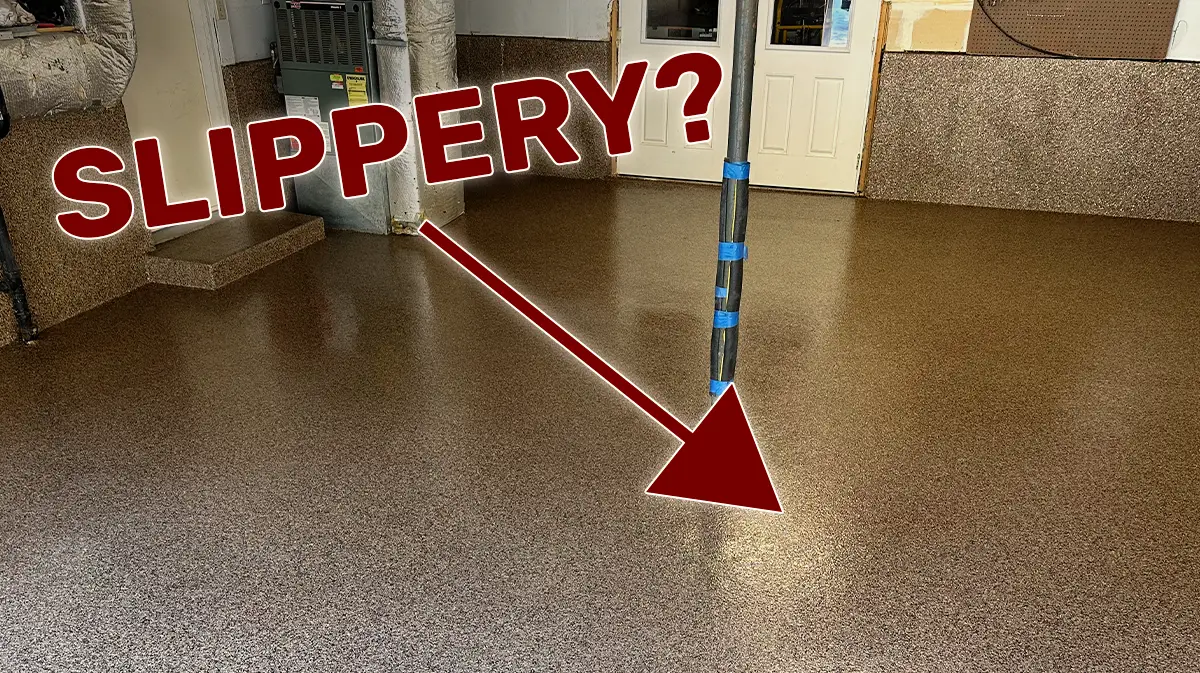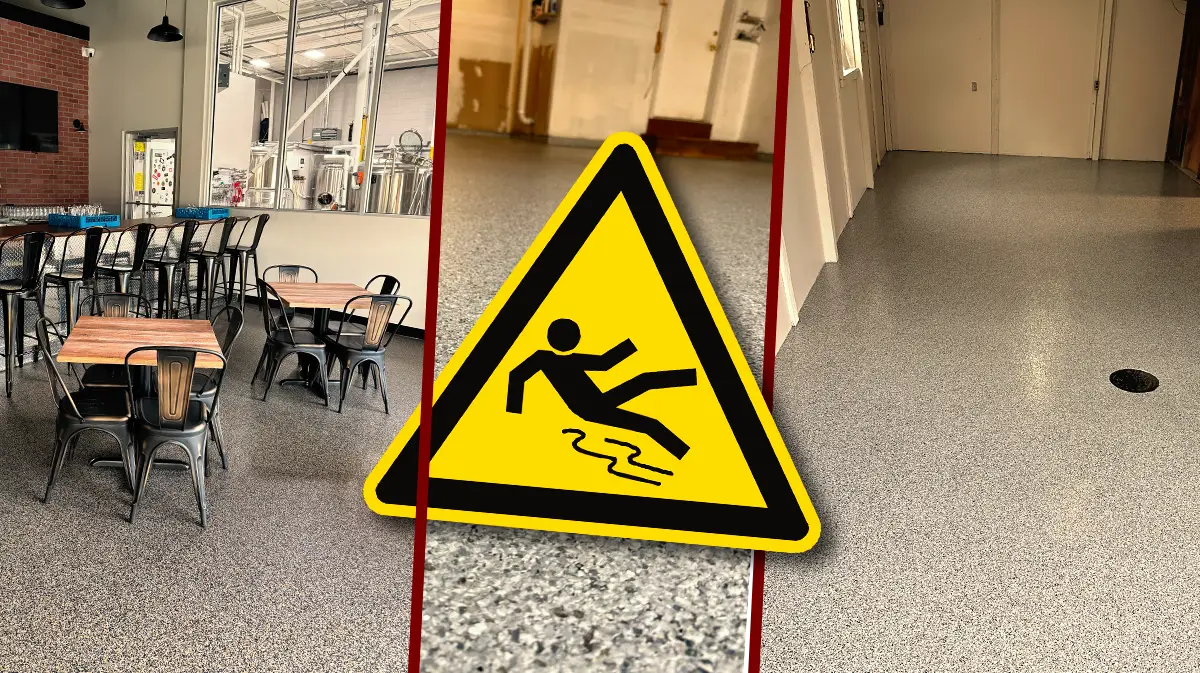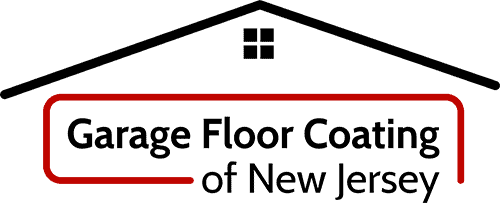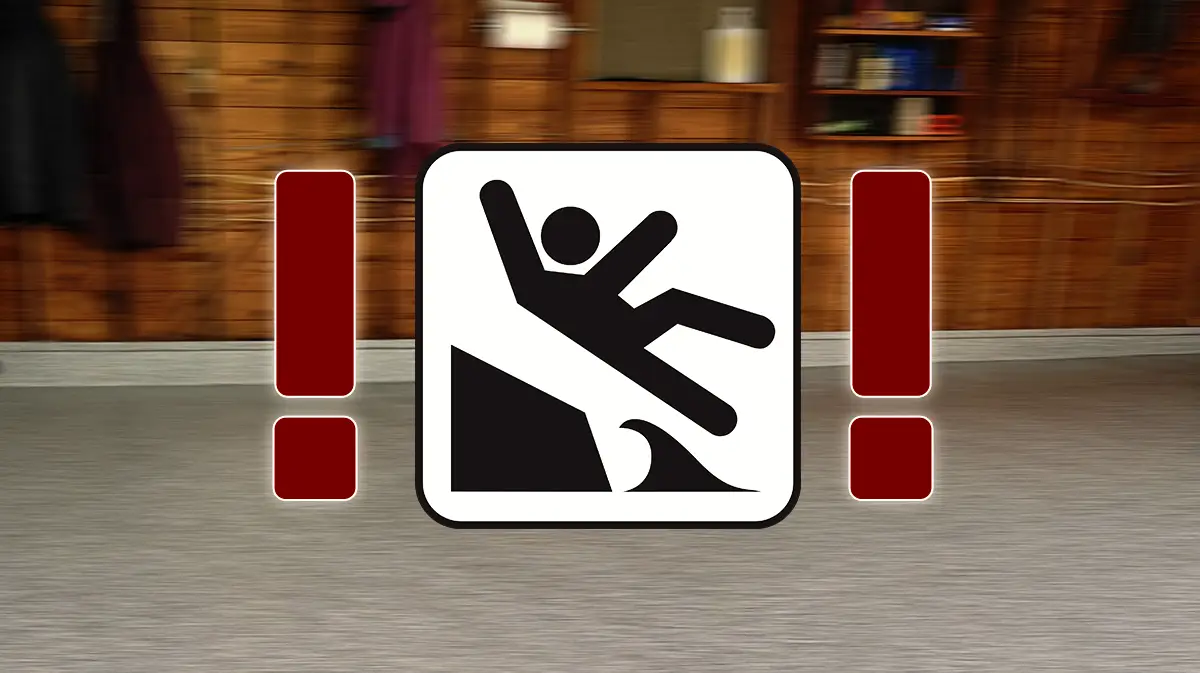Epoxy coatings are an excellent choice for garage floors in New Jersey, celebrated for their sturdiness, ease of cleaning, and resistance to moisture and chemicals. However, these coatings can sometimes become dangerously slippery when wet, posing a safety risk in both residential and commercial settings.
New Jersey’s weather, with hot, humid summers and cold, wet winters, can intensify the slipperiness of epoxy-coated floors. Rain, snow, and ice tracked into the garage can create hazardous conditions. Ensuring your floor is slip-resistant is crucial to maintaining a safe environment for your family and visitors.
In this blog, we’ll discuss the process of making your epoxy and polyaspartic floors slip resistant.


Making Your Epoxy and Polyaspartic Floors Slip Resistant: Polypropylene and Glass Spheres – The Subtle Choice
For areas with low to medium foot traffic, such as kitchens, basements, and garages, polypropylene and glass spheres are an excellent choice. These anti-skid aggregates are small, round particles that are mixed into the epoxy coating to create a slightly textured surface. This texture provides enough grip to reduce slip risks without making the floor difficult to clean. One of the main advantages of polypropylene and glass spheres is their subtlety. They blend seamlessly into the epoxy, maintaining the floor’s aesthetic appeal while enhancing safety. Additionally, these aggregates are relatively easy to maintain, making them a practical option for residential spaces that require frequent cleaning.
Making Your Epoxy and Polyaspartic Floors Slip Resistant: Quartz and Aluminum Oxide – The Robust Solution
For high-risk areas, such as spaces frequented by the elderly, children, or where spills are common, more aggressive anti-skid options like quartz and aluminum oxide are preferable. These materials are harder and more angular than polypropylene and glass spheres, providing superior slip resistance. Quartz and aluminum oxide aggregates create a much rougher texture on the floor, which significantly reduces the risk of slipping, even in the presence of water or other liquids. While they are more visible and can be harder to clean, their effectiveness in preventing slips makes them ideal for areas where safety is a primary concern. Despite their rough texture, these aggregates come in various colors, allowing skilled installers to blend them into the floor design, ensuring both functionality and aesthetic appeal.
Be Safe!
Don’t worry, there isn’t a test at the end of this thing. In fact, if you call a professional around the New Jersey area, you’ll find them explaining this in depth as well. They can recommend the best type of anti-skid aggregate for your specific needs, ensuring a safe, durable, and visually appealing finish.

